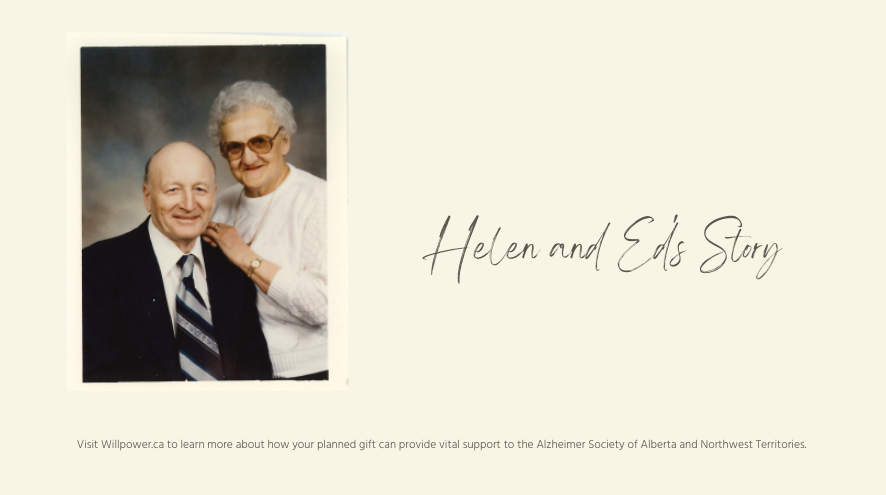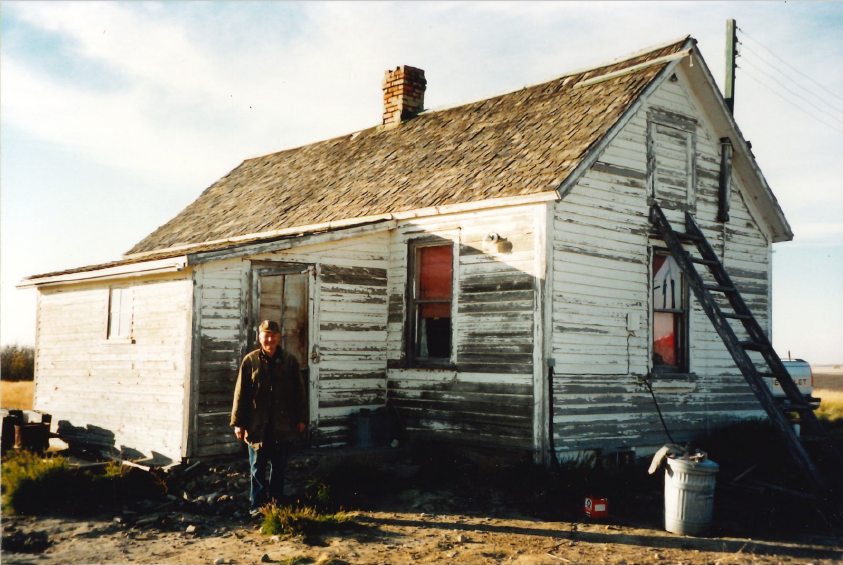Make a Plan to Give: Helen and Ed's Story
Helen had a strong desire to give a donation to the Society as a tribute to her husband’s memory. But as with many people, immediate giving was not a practical choice.

Before she ever encountered the Alzheimer Society, Helen Bayer spent most of her time on the farm that she owned with her first husband in southern Alberta. Hard work was a part of her daily life. As her nephew, John Shapka, recalls, at one point she and her husband had 20 dairy cows that they milked every day by hand.
“They worked hard for everything they earned,” John recalls. “But they always ate good at home, growing a big garden. Boy, she could cook.”
After her first husband died in his sixties, Helen met and eventually married Ed Bayer. He had a farm in Richmond, Saskatchewan, and they lived in Medicine Hat when they weren’t out on the farm. Helen and Ed worked hard and enjoyed participating in community activities and spending time with friends and neighbours. What John remembers most clearly about Helen and Ed is how much they loved each other.

“They had a love affair, honest to God,” says John. “They totally respected each other. Helen just adored him and was absolutely adored.”
Ed was diagnosed with dementia in his 80s, after they retired from farming, and Helen found herself taking on a caregiver role. It was then that she contacted the Alzheimer Society of Alberta and Northwest Territories for support. The Society helped Helen through the difficult period of caring for him and making decisions around their living arrangements.
“He finished his life in an institution,” John says. “And Helen in the meantime bought a little one-bedroom apartment for herself over on 13th Street.”
The separation was difficult for the two. After Ed passed away, Helen had a strong desire to give a donation to the Society as a tribute to his memory. As John remembers, she wanted to “do something for Ed.”
But for Helen, as for many people in her position, immediate giving was not a practical choice. Even though she had been frugal all of her life, financial realities meant that she would have to plan carefully. And so she chose to leave a charitable gift in her will.
“Helen’s concern always was at the end that there wouldn't be enough money,” says John. “Otherwise, she would have probably written the check. She did it this way knowing that for sure she'd be okay.”
For Helen, leaving a legacy gift to the Society in her will was the best way for her to give back. For the more than 50,000 people in the region who have been diagnosed with Alzheimer’s and other dementias, Helen’s gift brings free support and education services to their families. It’s a fitting tribute to Helen and Ed and their love story, allowing for people just like them to receive the help they need.
Visit Willpower.ca to learn more about how your planned gift can provide vital support to the Alzheimer Society of Alberta and Northwest Territories.
